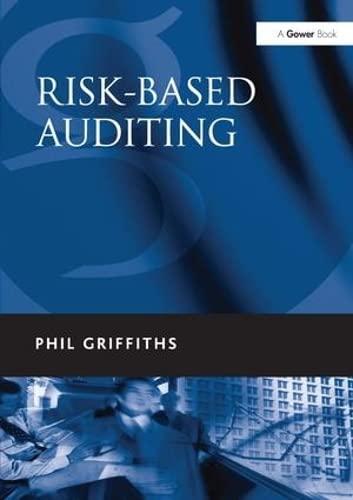Question
Accoutning Information Systems 2nd Edition Chapter 7 Problem 2 ISBN: 1260223663 Penny loves pastries. She wanted everyone else to love pastries, too, so she started
Accoutning Information Systems 2nd Edition Chapter 7 Problem 2 ISBN: 1260223663
Penny loves pastries. She wanted everyone else to love pastries, too, so she started Penny's Pastries in Orange County about 3 years ago. After a shaky start, she scored a big contract with Starbucks to provide pastries to all stores in southern California. This case describes Penny's daily baking process. Penny's bakery starts preparing fresh pastries every morning about 1:00 a.m. for delivery to local stores by 5:30 a.m. The selection and quantity of pastries vary according to the day of the week as well as the time of the year.
Inventories
Although Penny has a number of her own specialties, she makes many of her baked products according to Starbucks' requirements. So, every day she makes some of her own pastries for sale in her bakeries as well as all the pastries for the various Starbucks locations. Currently, her finished goods inventory can include more than 50 different kinds of pastries and baked products. Because of the volume that Penny produces, she maintains an extensive inventory of the ingredients that she uses in her baked goods, such as flour, butter, milk, chocolate, and cinnamon.
Baking Plans
Penny carefully plans the contents and preparation of each finished product (pastry and baked good). There are two parts to her formal plansan ingredient list and a recipe for each baked product. The ingredient list specifies the quantity of each ingredient required for each finished product. The recipe defines the sequence of steps that her page 196
bakers follow to prepare each finished product. The recipe steps also set the standard number of labor-hours, as well as the specific equipment used, to make a standard batch of each finished product.
Daily Baking Process
Early each morning, the supervisor prepares a daily baking order that specifies the quantities of all the different finished products to be prepared that day. As soon as the various products and quantities are known, an inventory clerk uses the ingredient list to issue all the ingredients necessary for the day, moving them from the storeroom to the baking area. In some cases, the clerk may issue ingredients several different times for each daily baking order so that none of the refrigerated items are left out longer than necessary. Penny assigns sequential issue numbers to each issue during the day, and the clerk carefully records the quantity of each ingredient issued.
Penny's bakers prepare the finished products in batches. Each batch produces one finished baked good product. A supervisor (who could be different from the supervisor who issued the baking order) issues a batch order to start the baking process for that batch. The bakers then prepare the ingredients in a series of baking steps according to the recipe for that product using the equipment and ovens specified in the recipe. Penny's bakery has an array of ovens and baking equipment, tracked by equipment number, to keep up with the daily baking production volumes. Because each oven has different characteristics, the baking time for each product can depend on the particular oven used. The baking steps usually involve mixing ingredients, preparing the pastries, placing the prepared items in an oven for baking, and then removing the products and placing them on cooling racks, ready for packing. Each actual baking step may involve the use of multiple pieces of baking equipment and multiple bakers. Penny carefully tracks actual hours of labor and equipment use for each baking step.
General Information
Penny does not separately identify employees as supervisors, inventory clerks, or bakers. There is one employee entity. Information on ingredient lists, recipes, finished products, ingredients, and employees is put into the database before those entities are linked to events or type images.
Draw a BPMN activity diagram that describes Penny's baking process.
Make a UML class diagram with classes, associations, and multiplicities.
Using the preceding case information and the following attributes list, make a listing of the relational tables necessary to support this conversion process. List the tables in the following order: resources, events, agents, type images, and linking tables.
Attributes:
Actual baking time for this baking step and this oven
Baking order#
Baking order date
Baking step#
Batch#
Batch finish time
Batch start time
Employee#
Employee hours worked on this baking step
Employee name
Employee pay rate
Equipment#
Equipment description
Equipment manufacturer
Finished product#
Finished product description
Finished product number of calories
Finished product price
Finished product QOH
page 197
Ingredient#
Ingredient cost
Ingredient description
Ingredient list#
Ingredient list description Ingredient QOH
Ingredient unit of issue
Issue#
Issue date/time
Qty of this baked product ordered by this daily baking order
Qty of this baked product prepared in this batch
Qty of this ingredient issued on this issue# Qty of this ingredient required for this finished product
Recipe step#
Recipe step description
Standard baking time for this recipe step with this oven
Standard labor hours for this recipe step
Total labor hours for this baking step
Step by Step Solution
There are 3 Steps involved in it
Step: 1

Get Instant Access to Expert-Tailored Solutions
See step-by-step solutions with expert insights and AI powered tools for academic success
Step: 2

Step: 3

Ace Your Homework with AI
Get the answers you need in no time with our AI-driven, step-by-step assistance
Get Started


